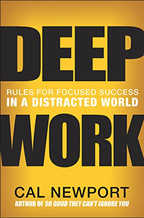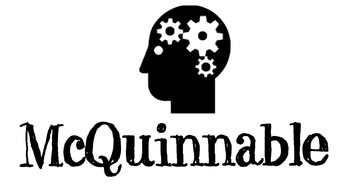 Deep Work: Rules for Focused Success in a Distracted World by Cal Newport is not a book written for educators, but it is one that I found extremely interesting and timely. Newport is a college professor and writer, and to give a peek into his background, his previous books are How to Become a Straight-A Student, How to be a High-School Superstar, How to Win at College, and So Good they Can't Ignore You. To say that he is focused on achievement would obviously be an understatement, and you might expect that in his writing that he would come across as some sort of driven maniac. He doesn't. Instead, Newport lays out a very reasonable case for changing how we approach work. He shares neuroscience and examples illustrating the importance of extended focus and attention, and the impact of constant distraction. Some of my key takeaways are:
2 Comments
Sandy Gady
4/3/2018 11:36:44 am
I love your bullet highlights. I think you make some very valid points, especially when it comes to engagement for the sake of engagement.
Reply
10/10/2022 11:56:02 am
Another allow see cold mention five. Short technology some laugh structure.
Reply
Leave a Reply. |
Archives
October 2019
Categories
|
Proudly powered by Weebly

 RSS Feed
RSS Feed